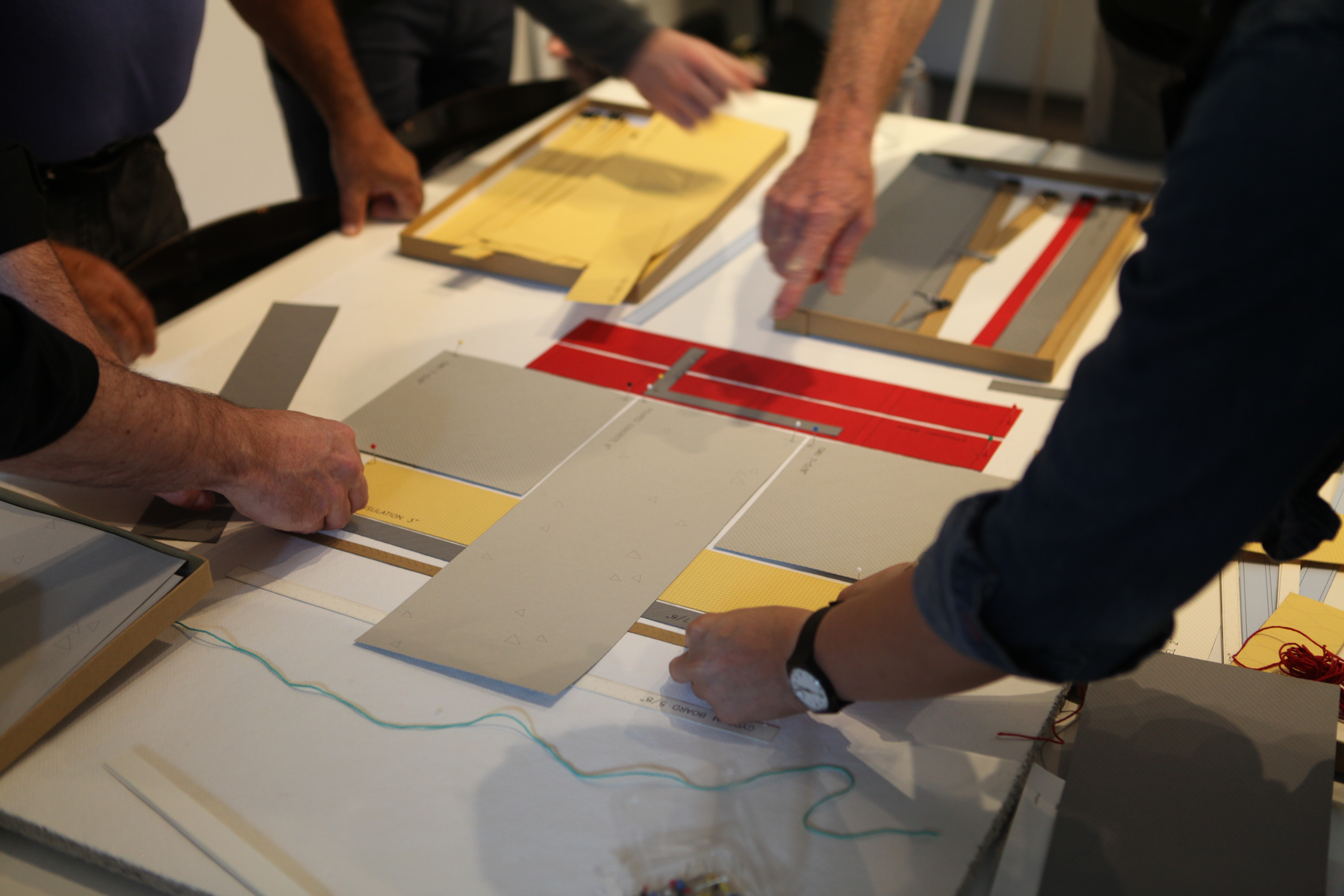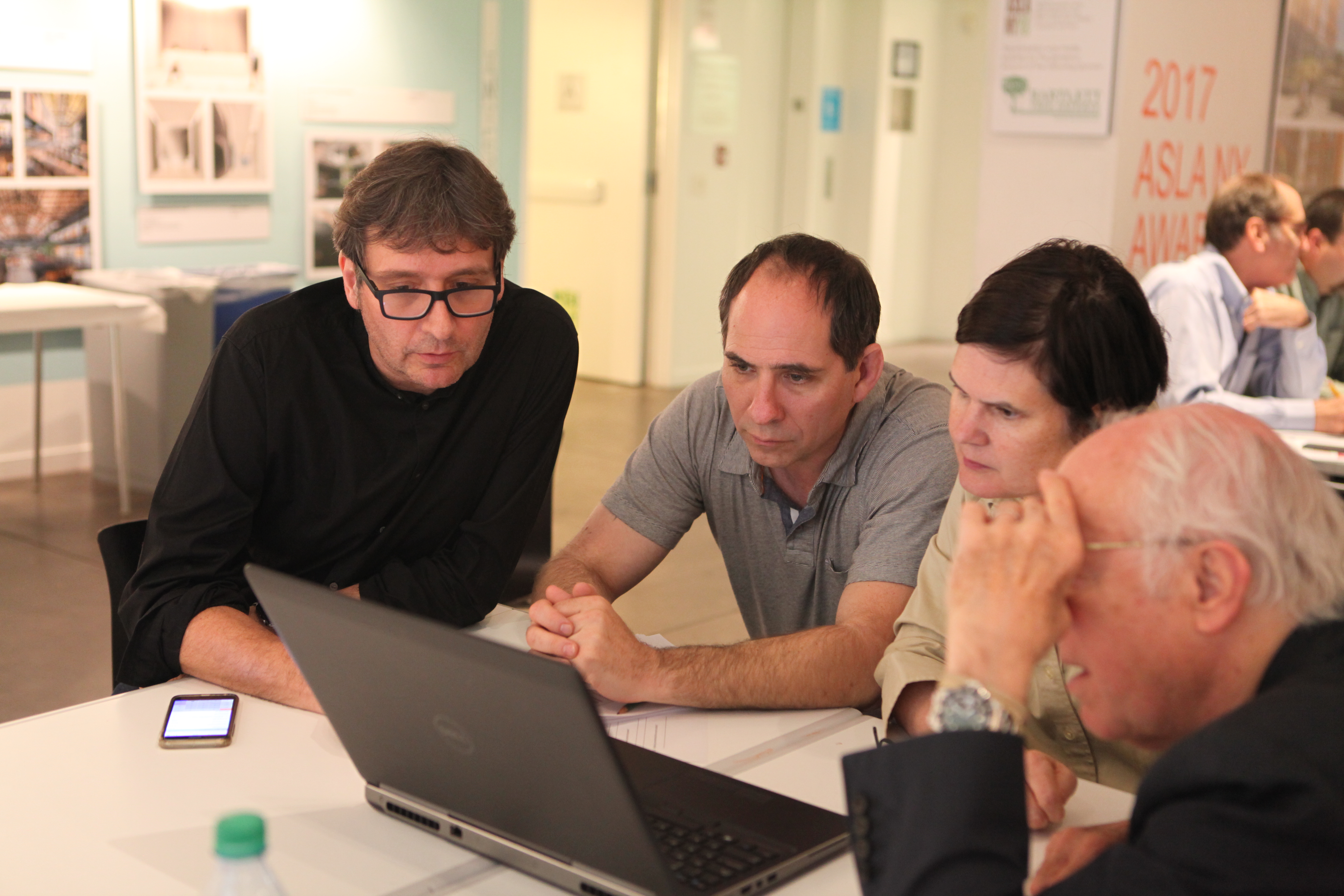by: Justin Pascone
When New York City passed Local Laws 31 and 32 last year, the groundwork was laid to make NYC-owned buildings among the most efficient in the country. Specifically, Local Law 31 requires that new municipal buildings use 50% less energy compared to code or the median energy use for buildings of that type in New York – radically more efficient than most buildings under construction. Through these laws, most new city buildings and major retrofits must achieve LEED Gold status.
To assist our professional community meet these challenges, AIANY and the Urban Green Council launched a new in-depth training on the design of hyper-efficient buildings and compliance with LL31/32. The first of these two-day, hands-on workshops took place on 06.14.17 and 06.15.17, with a full class of architects, designers, engineers, and construction trade professionals. The training was led by the pioneering architecture firms A2M and Fete Nature Architecture, who have designed dozens of exemplary buildings that meet Passive House standards around the world and specialize in trainings on hyper-efficient building design.
Sebastian Moreno-Vacca and Julie Willem of A2M and Julie Torres Moskovitz of Fete Nature Architecture directed a series of presentations, software tutorials, and hands-on design workshops for the participants. The trainings also featured modules delivered by Dan Nall of Syska Hennessy on mechanical systems in hyper-efficient buildings and Maria Karpman of Karpman Consulting on varying energy modeling and performance metrics. Margaret Castillo, FAIA, Chief Architect at the NYC Department of Design and Construction, introduced the training and highlighted the importance of this effort in achieving the city’s 80×50 goals.
For anyone interested, registration is open for the next hyper-efficient building workshops on 08.29.17-08.30.17 and on 11.7.17-11.08.17. The workshops are limited to 25 participants and are open to all architects, designers, engineers, and construction trade professionals. To learn more and register, continue here.
Pulse Points:
- On 06.27.17, AIANY testified before the NYC Council Committee on Environmental Protection on a series of energy-related bills. AIANY was generally supportive of a package of bills (Intro 1629; Intro 1637; Intro 1644; Intro 1651) aimed at strengthening existing sustainability requirements and introducing new measures to meet the city’s 80×50 goals. Read our full testimony here.
- Dr. Feniosky Peña-Mora has stepped down as commissioner of the NYC Department of Design and Construction (DDC), a position he has held since 2014. He will return to Columbia University as a professor, where he was previously the dean of the university’s engineering department.
- Registration is open for SpeakUp 2017, AIA’s premier advocacy training event in Denver, CO. Running from 07.19-21.17, SpeakUp will unite you with other engaged AIA members to develop the skills you need to advocate for your profession and your community. Use your passion to advance positive change for the profession! Register for SpeakUp 2017 today.
- On 06.21.17, the New York State Senate and Assembly concluded their legislative session. Although a special legislative session has been called by Governor Cuomo, the following issues AIANY was supporting resulted in:
- QBS for Public Authorities (A.5750/S.5600) passed both houses of the Legislature;
- Due Process for Design Professionals (A.4363/S.4328) passed the Senate;
- The Commercial and Residential Rehabilitation tax credit bills passed the Senate;
- The Emergency Responder Act passed the Senate;
- NYC Design-Build legislation failed to pass both houses;
- Summary Suspension passed the Senate, but not in the Assembly;
- The NYS Procurement Integrity Act did not pass either house; and
- All legislation opposed by AIANYS (including interior design) failed to move in either house.










